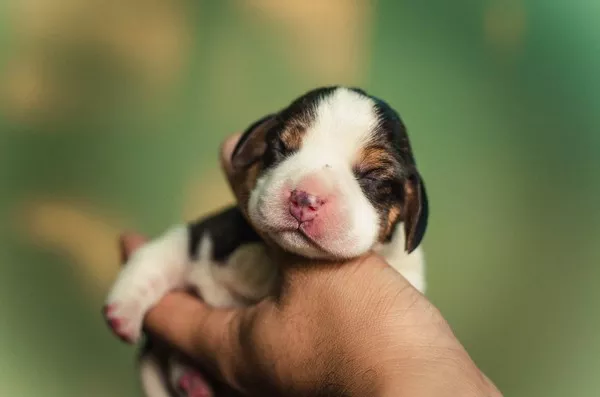Cats are fascinating creatures with a unique set of behaviors and habits that vary significantly between different breeds. One such breed is the Devon Rex, known for its playful nature, affectionate demeanor, and distinctive appearance. One of the most interesting aspects of a cat‘s life is its sleep patterns. In this article, we will delve into the sleeping habits of Devon Rex cats, exploring their sleep duration, sleep cycles, factors influencing sleep, and the importance of sleep for their overall health and well-being.
Understanding the Sleeping Patterns of Cats
Sleep Duration in Cats
Cats are known for being champion sleepers, averaging around 12 to 16 hours of sleep per day. This can vary based on several factors, including age, activity level, and overall health. Kittens and elderly cats tend to sleep more than their adult counterparts, sometimes exceeding 20 hours of sleep in a 24-hour period.
Sleep Cycles
Cats experience two primary types of sleep: slow-wave sleep (SWS) and rapid eye movement (REM) sleep. During SWS, the cat’s body is relaxed, but it can still be alert to potential threats. This is crucial for a predator, as it allows them to conserve energy while remaining aware of their environment. REM sleep is where dreaming occurs, and it is during this stage that the brain processes information and consolidates memories.
The Natural Instincts of Cats
Cats are naturally crepuscular, meaning they are most active during dawn and dusk. This behavior is rooted in their evolutionary history as hunters. In the wild, cats would have hunted prey that was also active during these times, and their bodies have adapted to this rhythm. As a result, cats often have bouts of activity followed by long periods of sleep throughout the day and night.
The Devon Rex Breed Overview
History and Characteristics
The Devon Rex breed originated in Devon, England, in the 1960s. This breed is characterized by its soft, curly coat, large ears, and playful disposition. The breed’s playful and social nature often translates into a desire to be involved in family activities, which can affect their sleep habits. Devon Rex cats are known for their intelligence and adaptability, making them excellent companions.
Physical Traits
The Devon Rex has a unique physical appearance, including a slender body, long legs, and large, expressive eyes. Their short, curly coat requires less grooming than other breeds, which can be an advantage for pet owners. However, their distinctive coat does not influence their sleep habits directly.
Personality Traits
Devon Rex cats are often described as social, affectionate, and playful. They enjoy human companionship and tend to form strong bonds with their owners. Their playful nature may lead to bursts of energy followed by extended periods of rest, making their sleeping patterns unique compared to more solitary cat breeds.
How Long Do Devon Rex Cats Sleep?
Average Sleep Duration
Devon Rex cats, like most domestic cats, typically sleep between 12 to 16 hours a day. However, individual sleep patterns can vary significantly based on several factors, including age, personality, and overall health.
Kittens
Kittens tend to sleep more than adult cats, often requiring up to 20 hours of sleep per day. This is essential for their growth and development, as sleep plays a crucial role in physical and mental development during this early stage of life.
Adult Cats
Adult Devon Rex cats generally fall within the average sleep range of 12 to 16 hours per day. However, active and playful adults may engage in short bursts of play followed by extended rest periods.
Senior Cats
As cats age, their sleep patterns may change again. Senior Devon Rex cats may sleep more than their younger counterparts, sometimes reaching 18 to 20 hours of sleep per day. This increase in sleep can be attributed to reduced energy levels, potential health issues, and the natural aging process.
Factors Influencing Sleep Duration
Several factors can influence how long a Devon Rex cat sleeps, including:
1. Age
As mentioned earlier, age significantly affects sleep patterns. Kittens and senior cats tend to sleep more, while adult cats fall into the average sleep range.
2. Activity Level
Devon Rex cats are known for their playful nature. Cats that engage in regular playtime and exercise may require more sleep to recover from their activities. Conversely, sedentary cats may sleep less due to lower energy expenditure.
3. Health Status
The health of a Devon Rex cat can also impact its sleep patterns. Cats experiencing illness or discomfort may sleep more than usual. Conversely, those in pain or distress may have disrupted sleep, leading to a decrease in overall sleep duration.
4. Environment
The environment plays a crucial role in a cat’s ability to sleep comfortably. A calm, quiet space is ideal for sleep, while a noisy or stressful environment can disrupt their rest. Providing a cozy and secure sleeping area can promote better sleep quality.
5. Diet
A well-balanced diet contributes to a cat’s overall health and can influence sleep patterns. Cats that are fed a high-quality diet may experience better sleep quality and duration than those on a subpar diet.
The Importance of Sleep for Devon Rex Cats
Physical Health
Sleep is essential for the physical health of Devon Rex cats. It allows their bodies to repair and regenerate tissues, support immune function, and maintain a healthy metabolism. Lack of adequate sleep can lead to various health issues, including obesity, diabetes, and other metabolic disorders.
Mental Health
Just as physical health is vital, so is mental well-being. Sleep plays a crucial role in a cat’s cognitive function, allowing them to process information, learn new behaviors, and consolidate memories. Insufficient sleep can lead to behavioral issues, anxiety, and stress, impacting their overall quality of life.
Social Bonds
Devon Rex cats are social animals that thrive on interaction with their human companions and other pets. Adequate sleep allows them to recharge and engage in social activities, enhancing their relationships with their families.
Development in Kittens
For young Devon Rex kittens, sleep is crucial for their development. During sleep, growth hormones are released, facilitating proper growth and organ development. Insufficient sleep during this stage can lead to developmental delays and health problems.
Signs of Sleep Problems in Devon Rex Cats
Changes in Sleep Duration
If you notice significant changes in your Devon Rex cat’s sleep patterns, such as sleeping excessively or showing signs of insomnia, it may indicate an underlying issue. Monitoring their sleep habits can help identify potential health problems.
Behavioral Changes
Behavioral changes can be a sign of sleep disturbances. If your cat becomes more irritable, aggressive, or withdrawn, it may be experiencing sleep issues. These changes can be due to pain, anxiety, or stress, necessitating a veterinary consultation.
Physical Symptoms
Physical signs of sleep problems may include lethargy, lack of appetite, or changes in grooming habits. If your Devon Rex cat exhibits these symptoms alongside sleep changes, it’s essential to consult a veterinarian to determine the cause.
Sleep Disruptions
Frequent waking or difficulty settling down can indicate sleep disturbances. If your cat struggles to find a comfortable sleeping position or seems restless, this could point to discomfort or stress.
Creating an Optimal Sleep Environment for Your Devon Rex
Cozy Sleeping Areas
Providing your Devon Rex with a comfortable sleeping area is crucial for ensuring they get quality rest. Soft bedding, such as fleece or plush blankets, can make a significant difference in their sleep quality. Additionally, placing their bed in a quiet, low-traffic area will help them feel safe and secure.
Noise Control
Minimizing noise in your cat’s environment can help promote better sleep. Consider using white noise machines or soft music to drown out disruptive sounds. Creating a peaceful atmosphere allows your Devon Rex to relax and fall asleep more easily.
Temperature Regulation
Cats prefer a comfortable temperature for sleeping. Make sure their sleeping area is not too hot or cold, as extreme temperatures can disturb their sleep. Providing a cozy blanket or an insulated bed can help regulate their body temperature.
Safe Spaces
Devon Rex cats thrive in secure environments. Creating safe spaces where they can retreat and relax can help reduce stress and promote better sleep. This could include hiding spots, such as cardboard boxes or cat trees with enclosed areas.
Interactive Playtime
Engaging your Devon Rex in interactive play before bedtime can help them expend energy and prepare for sleep. Providing stimulating toys, such as feather wands or laser pointers, can help them release pent-up energy and settle down for the night.
Conclusion
Understanding the sleep habits of Devon Rex cats is essential for ensuring their health and well-being. These affectionate and playful cats typically sleep between 12 to 16 hours a day, influenced by factors such as age, activity level, health, and environment. Sleep plays a crucial role in their physical and mental health, contributing to growth, development, and overall quality of life.
By creating an optimal sleeping environment and being mindful of changes in their sleep patterns, you can help your Devon Rex achieve restful sleep and maintain their energetic and loving nature. As a devoted pet owner, observing and responding to your cat’s needs will foster a happy and healthy relationship, allowing your Devon Rex to thrive in your home.
Related Topics:























